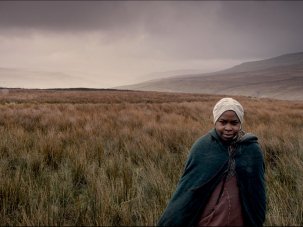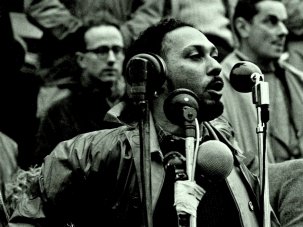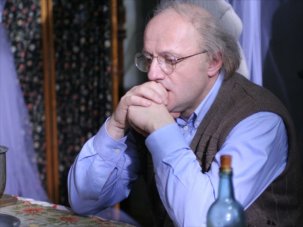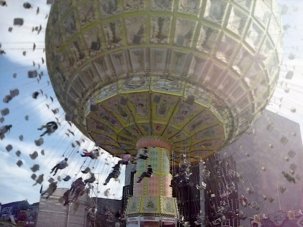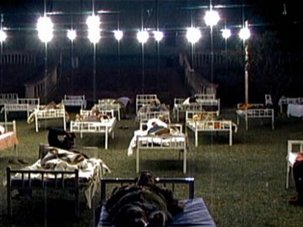Web exclusive
Tiny snow particles drift across an icy road some 150 kilometres above the polar circle. Filmmaker Frederik Jan Depickere’s stationary camera observes the empty road – which leads to an unfinished construction site – and the snowflakes glide, pause, then spray onto the lens.
This opening shot from Depickere’s short documentary Adrift contains an apt visual metaphor. Not only does it succinctly depict the film’s subject matter – displacement – but it does so in a way that shows the film’s greater ambitions: this may be an issue-based short doc, but it is more than simply alternative reportage.
Centred on Sharman Simu, a Ugandan forced to flee his country, Adrift explores the disjuncture between the refugee’s experiences of violent turmoil in his home country and the cold desperation of his current situation. His father and brother murdered, mother missing and his sister dead from HIV, Simu’s trauma is palpable and vivid. His resettlement in Norway, however, is only offering him peace. Satisfaction lies elsewhere.
Depickere uses the landscape to capture the mundanity of Simu’s situation. He labours in the crisp snow shovelling frozen waste; persevering but isolated, Simu’s displaced life is as inert as his frozen surroundings.
The images of the Ugandan’s forlorn silhouette set against beautiful but chilling Arctic vistas calls to mind John Akomfrah’s The Nine Muses. Both films give voice to migration from the perspective of the African and Caribbean diaspora, equating the migrant’s new country as a hostile but captivating place.
But in Adrift, the contrast between Simu’s equatorial homeland and the polar conditions of his adopted country is literal. “I don’t belong here”, says Simu, “but if I went home they would just make me disappear.” Here Depickere uses his protagonist’s plight to illustrate a more universal consideration, namely environmental determinism: the role it plays in the individuals we become and the chances it offers us in life.
And so the film rightly offers space to consider Simu’s future. The magic of the Northern Lights, a natural phenomenon often associated with forces outside human control, becomes here a symbol of hope. Simu’s experiences are harrowing and no one would blame him for any emotional frigidity or despair. But in finishing on a static shot of the shimmering, pirouetting Aurora Borealis, Depickere reminds us of the beauty in the world. The landscape may be frozen, but Simu is not.
Political but with a rich aesthetic, personal but with universal meaning, this beautiful and intelligent film is a notable addition to the short documentaries playing at this week’s Encounters short film and animation festival in Bristol. It screens in one of their international programmes, Burning Bridges, and is in competition, as part of the Documentary Showcase at the end of the week.




